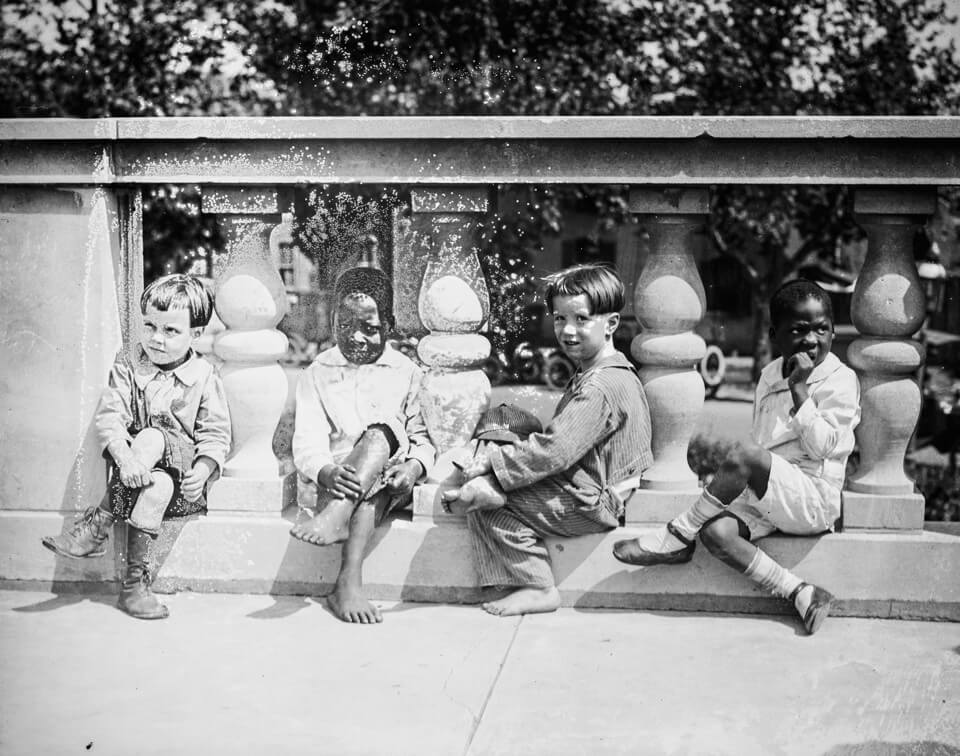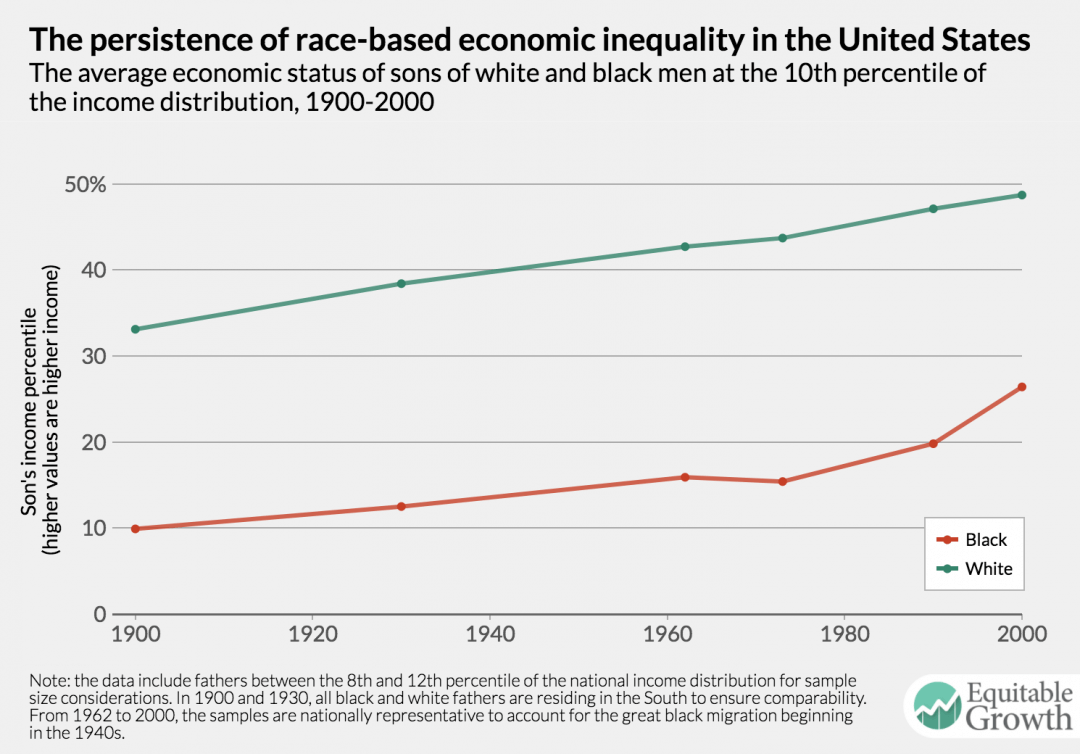The persistence of earnings differences among white and black men

Slavery in the United States ended more than 150 years ago. In that time, black men have seen their relative earnings rise compared with those of white men, but the pace of progress has been slow, and racial economic inequality remains strongly persistent. In 2015, when including those out of the labor force, the median African American man in his prime working years—ages 25 to 54—earned $23,000 compared with the $44,000 earned by his white counterpart.
But what explains this gap? Is it possible that the weak pace of economic convergence reflects the very low average starting position of black men at the time of emancipation? Is this earnings gap a legacy of the abject poverty of the enslaved? Or perhaps instead, do black men face unique challenges in escaping poor backgrounds—a legacy of race and discrimination rooted in the history of slavery yet persistent in other ways after emancipation?
New Working Paper
Up from slavery? African American intergenerational economic mobility since 1880
Most likely, today’s earnings gap is a combination of both factors, but to shed light on the relative importance of the initial poverty level of newly emancipated black men and race-specific barriers to economic convergence since then, we assembled new data to measure the rate of father-to-son economic status transmission over the past century and a half. Because we cannot observe income in the data from the late 19th century and early 20th century, we estimate income based on occupation, race, and geography.
We were particularly interested in whether poor white families in America experienced slow convergence toward the population’s mean earnings historically. If so, then that would suggest that poverty’s historical legacy has been powerful and that the slow pace of black men’s advance may largely reflect their initial concentration at the bottom of the U.S. economic and social ladders. If not, then it would suggest that race-specific factors have been paramount.
For cohorts of black and white sons born after 1940, federally collected and publicly available data sets provide sufficient information to compare the economic status of father-son pairs by income. But for earlier cohorts, observing father-son relationships requires more work. We created new data sets of father-son pairs by using samples of the U.S. census from 1880, 1900, 1910, and 1930, observing sons in their fathers’ households when the fathers were at work and then observing sons again 20 years later when they were in the labor force themselves. These linkages across time reveal father-son economic status relationships akin to those we see for later cohorts—even though we cannot measure income itself among those pre-World War II generations of black and white men.
Our results indicate that the “penalty” for being black in the intergenerational mobility process has been large and persistent since 1880. For each cohort we observe, black sons, on average, ranked roughly 20 percentile points lower in the national income distribution than whites with similarly situated fathers. This is true even within the South, where 95 percent of black Americans lived at the time of emancipation. In short, poor black and poor white children have faced sharply different prospects for their adult earnings throughout U.S. history.
This means that the racial economic inequality we observe in each cohort was primarily the product of race. These disadvantages for black children are readily apparent when we compare the fortunes of black and white sons of fathers at the 10th percentile of the national economic status distribution in each period. (See Figure 1.)
Figure 1

Our research also finds that the differences in average outcomes conditional on parental economic status among black and white men are not explained by differences in many nonincome personal attributes, such as childhood location, education, and their parents’ marital status. But controlling for educational test scores—through which we measure acquisition of human capital skills rather than the traditional standard measurement of educational achievement—substantially reduces the gap in earnings among black men and white men.
These findings provide a window into possible remedies for the persistent earnings gaps among white and black men. Equalizing children’s opportunities to build human capital may be critical first steps toward ameliorating racial inequality in adulthood.
—William J. Collins is the Terence E. Adderley Jr. Professor of Economics at Vanderbilt University and Research Associate of the National Bureau of Economic Research, or NBER. Marianne H. Wanamaker is an Associate Professor of Economics at the University of Tennessee, a Research Fellow of the Institute for the Study of Labor, and Faculty Research Fellow of the NBER.
